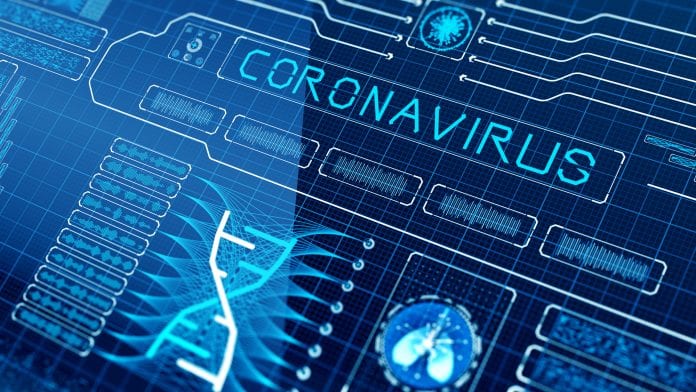
New technologies are informing the response to COVID-19 across the world, and a new mobile phone app is now using Artificial Intelligence (AI) to determine COVID-19 disease severity.
Using data from China and New York, the new mobile app, which has been developed by researchers NYU College of Dentistry, works to help clinicians identify which COVID-19 patients are most at risk of suffering a high severity of the disease. The Artificial Intelligence (AI) is used to help the clinicians assess the risk factors and identify biomarkers from blood tests.
The findings have been published Royal Society of Chemistry journal Lab on a Chip.
Technology supporting the fight against COVID-19
This new mobile app could be a vital tool in the fight against COVID-19 as current tests only test whether someone does or does not have the virus, not how sick they may become.
Lead researcher John McDevitt, professor of biomaterials at NYU College of Dentistry, said: “Identifying and monitoring those at risk for severe cases could help hospitals prioritise care and allocate resources like ICU beds and ventilators. Likewise, knowing who is at low risk for complications could help reduce hospital admissions while these patients are safely managed at home.
“We want doctors to have both the information they need, and the infrastructure required to save lives. COVID-19 has challenged both of these key areas.”
Artificial Intelligence COVID-19 ‘severity score’
To develop the app data from 160 patients, who had COVID-19 in a hospital in Wuhan, China, was used to help identify different biomarker in blood tests. The researchers then built a model using the information and trained the AI with a machine learning algorithm to define the patterns of COVID-19 and predict its severity – creating a severity score from 0 (mild) to 100 (critical).
The model was validated using data from 12 hospitalised COVID-19 patients from Shenzhen, China, and 1,000 New York City COVID-19 patients, which confirmed that the model’s severity scores were significantly higher for the patients that died versus those who were discharged.
Supporting clinical decisions
Co-author Isaac Dapkins, chief medical officer for the Family Health Centers at NYU Langone, said: “Real time clinical decision support tools for COVID-19 can be extremely helpful, particularly in the outpatient setting, to help guide monitoring and treatment plans for those at greatest risk.”
“We hope this tool can help identify those at high risk for adverse outcomes and reduce the health disparities present with COVID-19,” added Larry McReynolds, executive director for the Family Health Centers at NYU Langone.









